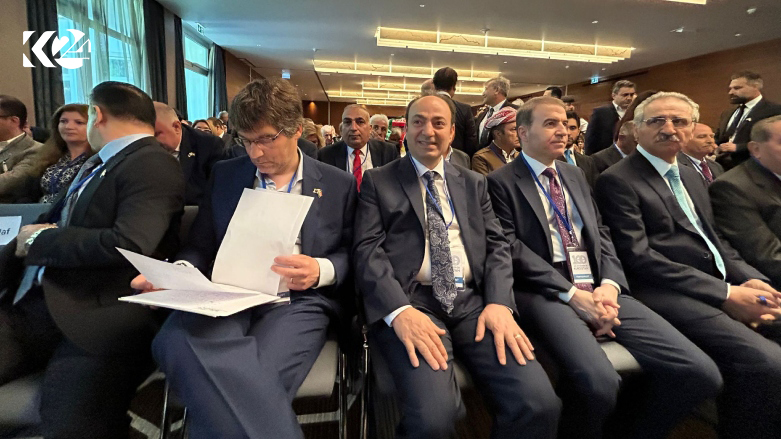Kurds hold conference on 100th anniversary of Lausanne treaty
“It is essential to address the negative consequences of the Lausanne Treaty and to recognize that the mistakes do not solely rest on the shoulders of the Kurdish people.”

ERBIL (Kurdistan 24) – The Kurdish Diaspora Center in Switzerland, in cooperation with the Kurdistan Diaspora Confederation, on May 27-28 organized a conference in Lausanne on the 100th anniversary of the signing of the Lausanne Treaty in 1923, which denied Kurdish statehood.
Hawraman Ali, Vice President of the Kurdistan Diaspora Confederation, told Kurdistan 24 that they hope the conference will “send a message to the world about the Treaty of Lausanne, which has been persecuting Kurds for 100 years.”
Following the conclusion of World War I, the demise of the Ottoman Empire provided an opportunity for the establishment of an independent Kurdish state under the post-war Treaty of Sevres.
Turkish nationalists, led by Mustafa Kemal Ataturk, strongly objected to the severe conditions imposed by the treaty and fought a new war. Thereafter, a revised agreement known as the Treaty of Lausanne was signed in 1923.
Under this new arrangement, the Kurdish territories in the Middle East were divided de-facto among Turkey, Iran, the French mandate of Syria, and the British mandate of Iraq, leaving the Kurdish people without a recognized sovereign state.
The conference aims to serve as a platform for participants to study the consequences of the Lausanne Treaty, focusing on the impact over the past one hundred years.
Kurdistan Democratic Party (KDP) President Masoud Barzani in a message underscored the Kurdish culture of coexistence with other ethnic or national groups. The Kurdish struggle has only been to combat oppression.
“(The) primary challenges faced by the Kurdish people were due to oppressive regimes, flawed policies, and dictatorships.”
“It is essential to rectify the negative consequences of the Lausanne Treaty and recognize that the mistakes do not solely rest on the shoulders of the Kurdish people.”
“The responsibility also lies with regional states, countries influencing the international equation, non-governmental organizations, academic and social institutions, activists, and notable figures, who should all participate in establishing a peaceful and democratic framework with the intent of resolving these issues."
Moreover, he underlined that the Kurdish diaspora can play a significant role in their respective countries by advocating for the Kurdish cause to defend the rights of the Kurdish people, and garnering support and friendship from individuals in other nations.
“This will contribute to mitigating the Kurds’ long history of oppression. This sacred duty requires unity, collaboration, and cooperation from all. In this capacity, it is crucial to prioritize the interests of Kurdistan above all others."